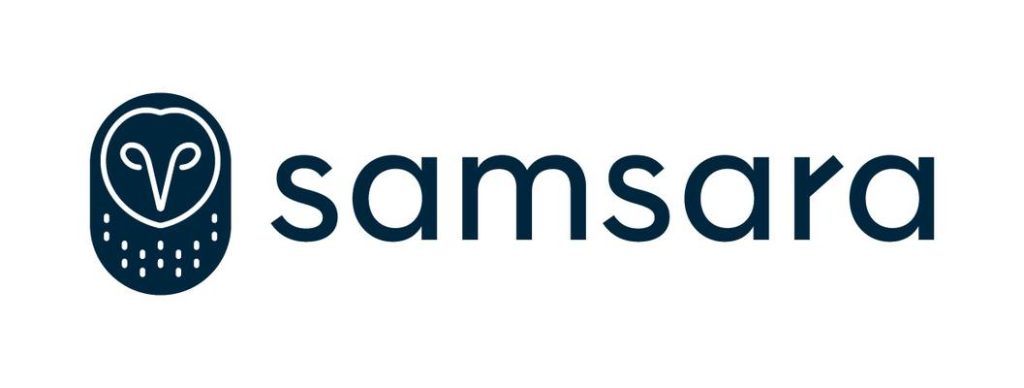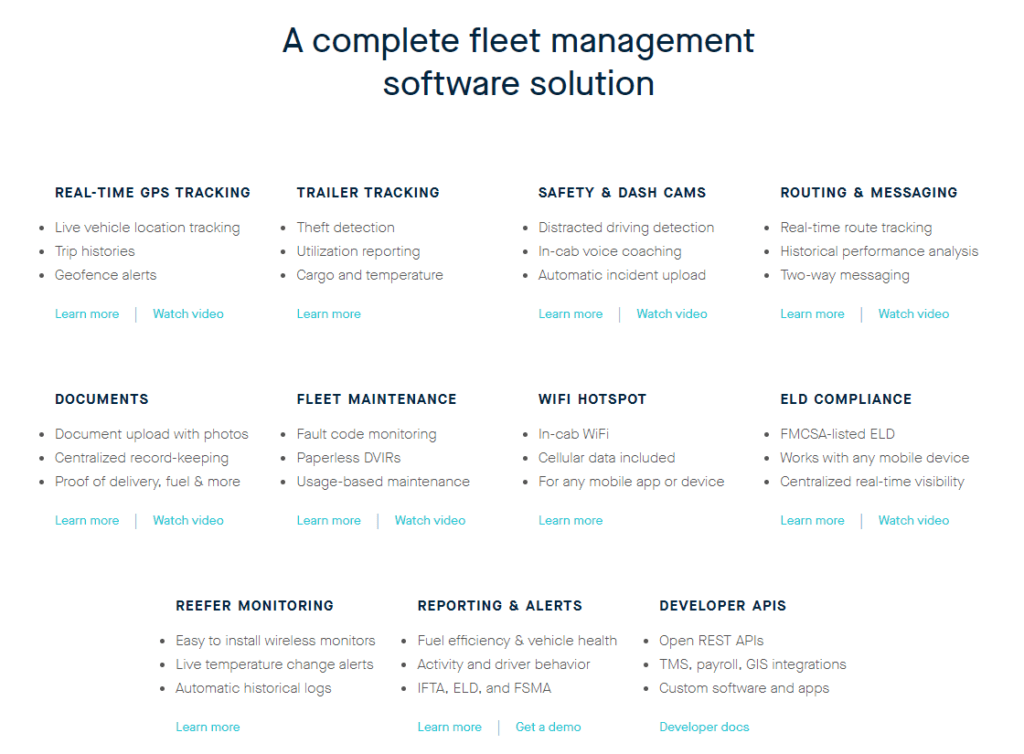Samsara and the Industrial Internet of Things (IIoT)

The shift to “Industry 4.0” presents a unique opportunity for startups to emerge and win. One of the early winners in this race so far is Samsara, which provides its customers with end-to-end solutions across a variety of industries, giving their customers tools and insights needed to compete in a quickly changing world.
Introduction
The Opportunity
As computer chips have become smaller and cheaper, the availability of broadband internet has grown, and innovative technologies such as RFID have become commonplace, the Internet of Things (IoT) has become ever more prevalent. There are currently over 20 billion devices connected to the internet, a figure which is expected to grow to 75 billion by 2025. While many of these devices are consumer-facing products (smart thermostats, wearables, etc.), significant opportunities have arisen in the Industrial Internet of Things (IIoT), utilizing technology to create more interconnected systems, increase efficiency, reduce operational costs and create safer environments for human operators. A quickly growing industry, the global industrial IoT market was estimated to be $264B in 2018 and is expected to reach $738B by 2025 , with some estimates as high as $949B.
This space is still developing, and many large players have stepped into the ring including GE (Predix), Siemens (MindSphere) and Honeywell (Forge) . However, it is still early in the game, and the dramatic change that “Industry 4.0” brings presents a unique opportunity for startups to emerge and win. One of the early winners in this race so far is Samsara, which provides its customers with end-to-end solutions across a variety of industries, giving their customers tools and insights needed to compete in a quickly changing world.
The Founders
In 2006, Sanjit Biswas, John Bicket, and Hans Robertson founded a startup as part of the MIT Roofnet project exploring efficient and self-organizing wireless networks. As the startup evolved they developed the technology into a fully packaged hardware + software solution, allowing organizations to easily deploy networks that can be managed from anywhere, and in 2012 the company was bought by Cisco for $1.2B in cash. After successfully integrating Meraki into Cisco’s product portfolio, Biswas and Bicket turned their sights towards the industrial sector. With their newly minted company Samsara (a Sanskrit word representing the concept of life, death and rebirth), they saw the opportunity for smaller and cheaper connected hardware to provide significant value to enterprise customers through improved efficiency in logistics and operations. While this in itself was not unique, they reasoned that the development methodologies perfected at Meraki and geared towards ease-of-adoption could be a significant advantage, allowing the startup to meet the needs of businesses during their IIoT transition at a faster pace and with lower cost relative to larger players.
The Company
A Unicorn is Born
Their experience in creating and scaling a successful startup proved to be a boon to the founders, enabling them to raise $25M in Series A funding from Andreessen Horowitz and bring Marc Andreessen onto the board as part of the investment. Since then the company has grown significantly, and currently has over 10,000 enterprise customers across various sectors including Oil & Gas, Retail, State & Local Governments, Automotive and Construction. They have also expanded internationally with operations in the US, Mexico, Canada and Western Europe. Developing and expanding this business has reflected very positively in the venture capital world, with a recent Series F investment round of $300M at a valuation of $6.3B, and total funding to-date of $530M.
An End-to-End Solution
Drawing on their experiences at Meraki, the core value proposition of Samsara is providing full-stack solutions for businesses to more easily integrate IoT technology into their operations. According to Biswas: “This is what got us really excited: We believe by making it easy to deploy sensors and analyze data, that customers of all types will finally be able to install them by the thousands in places they’ve never been used before.” While the company’s services include many applications expected from an IIoT provider, such as machine health monitoring, machine vision solutions and fleet management, where Samsara excels is bringing a complete solution to companies while shouldering much of the technical complexity. This could be a winning proposition indeed, with a 2017 Accenture study showing that over 70% of the industrial companies surveyed planned to increase IoT spending over the next several years, and 50% of companies were strongly involved with IT service companies and consulting firms to facilitate these changes.
Fleet Management, Industrial Automation and Beyond
The first area where Samsara chose to focus its efforts was Fleet Management, where the market for IoT solutions is expected to top $8.2 B by 2021. The array of features that Samsara provides to its customers is vast, including GPS tracking, theft detection, and real-time routing. The results from select case studies championed on the company website are impressive, including a 50% reduction in vehicle idling and a 30% reduction in claim payouts. Recently Samsara has also made a move towards Industrial Automation – a much larger market for IoT solutions, estimated to be $157B in 2018, and expected to reach$296.7B by 2026. In this area Samsara also offers a variety of services including automated quality inspections and power monitoring through a centralized dashboard. Through all of these use cases, Samsara also provides a simple-to-use pricing system and savings/ROI estimators on their website, making it easy for customers to evaluate the purchase decision. The breadth of features that Samsara provides can also enable customer loyalty and up-selling, make it easy to for customers to start by contracting Samsara for one particular use case, then incorporating additional features into other parts of the business as they see the benefits, or as the business expands.
Conclusion
While it is still early in the company’s history, the technical depth and experience of the founders and their customer focus have allowed Samsara to quickly pick up steam, generating a significant customer base and investor confidence in a rapidly growing market. As more businesses, large and small, aim to take advantage of technological improvements to improve their margins, it is likely that the technical challenge posed by these changes will present opportunities for startups such as Samsara to connect businesses with technology and win.
Sources:
- Brejcha, Jiri. 2020. “10 Things You Need To Know About Cisco Meraki”. Gblogs.Cisco.Com. https://gblogs.cisco.com/uki/10-things-you-need-to-know-about-cisco-meraki/.
- “Cisco Acquires Enterprise Wi-Fi Startup Meraki For $1.2 Billion In Cash”. 2020. Techcrunch.Com. https://techcrunch.com/2012/11/18/cisco-acquires-enterprise-wi-fi-startup-meraki-for-1-2-billion-in-cash/.
- “Customer Stories | Business Success Stories | Samsara”. 2020. Samsara.Com. https://www.samsara.com/customers/.
- Guizzo, Erico. 2020. “Networking From The Rooftop”. MIT Technology Review. https://www.technologyreview.com/s/402002/networking-from-the-rooftop/.
- “Industrial Iot Market Size Worth $949.42 Billion By 2025 | CAGR: 29.4%”. 2020. Grandviewresearch.Com. https://www.grandviewresearch.com/press-release/global-industrial-internet-of-things-iiot-market.
- Insights, Fortune. 2020. “Industrial Automation Market Will Rise At A CAGR Of 8.4%; Increasing Demand For AI-Based Industrial Robots Will Aid Growth, Says Fortune Business Insights”. Prnewswire.Com. https://www.prnewswire.com/in/news-releases/industrial-automation-market-will-rise-at-a-cagr-of-8-4-increasing-demand-for-ai-based-industrial-robots-will-aid-growth-says-fortune-business-insights-866899795.html.
- “Iot: Number Of Connected Devices Worldwide 2012-2025 | Statista”. 2020. Statista. https://www.statista.com/statistics/471264/iot-number-of-connected-devices-worldwide/.
- “Meraki Making Money As Cisco Maintains WLAN Market Lead”. Channel Asia. https://sg.channelasia.tech/article/646457/meraki-making-money-cisco-maintains-wlan-market-lead/.
- “Global Industrial Iot Market Report | 2020 – 2025”. Market Data Forecast. https://www.marketdataforecast.com/market-reports/industrial-ioT-market.
- Market, IoT. 2020. “Iot Fleet Management Market Size, Share, Forecast Report – 2021”. Marketsandmarkets.Com. https://www.marketsandmarkets.com/Market-Reports/iot-fleet-management-market-246122062.html.
- “Samsara Emerges As Leader In Industrial Iot”. 2020. Nanalyze. https://www.nanalyze.com/2019/10/samsara-leader-industrial-iot/.
- “Why Meraki’s Founders Think Their New Startup Can Reshape Sensors Like They Did Switches”. 2020. Forbes.Com. https://www.forbes.com/sites/alexkonrad/2015/05/19/samsara-founders-think-their-new-startup-can-reshape-sensors/#58918f854290.
- WIRED, Industrial. 2020. “Industrial Iot: How Connected Things Are Changing Manufacturing”. WIRED. https://www.wired.com/wiredinsider/2018/07/industrial-iot-how-connected-things-are-changing-manufacturing/.
- “Wireless Sensor Startup Samsara Raised Series A From Andreessen Horowitz”. 2020. Bizjournals.Com. https://www.bizjournals.com/sanjose/blog/techflash/2015/05/wireless-sensor-startup-samsara-raised-series-a.html.



